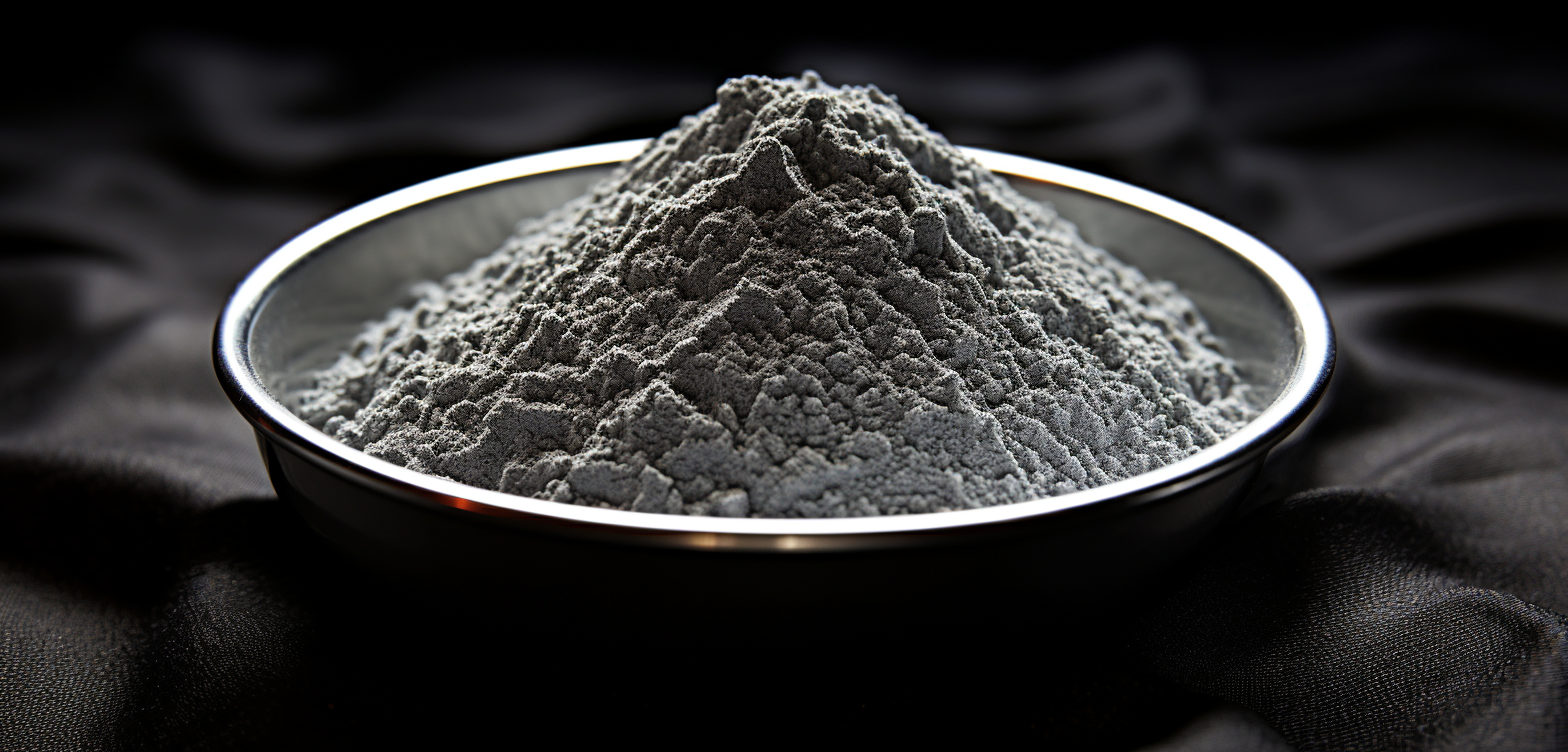

Niobium powder is a shiny silver-gray metallic powder chemically stable at ambient temperature and exhibits excellent electrical conductivity, superconductivity, and corrosion resistance. SAM provides spherical high-purity niobium powder (99.9%) and high-performance niobium alloy powders, such as C103 and Nb521.

Niobium powder is a finely divided, dark grayish-black metal powder that is made up of minute particles of niobium. It has a high melting point and is highly ductile and malleable in nature. Niobium powder is noted for its superior corrosion resistance and high temperature resistance. Niobium powder is insoluble in most acids and resistant to exposure to alkaline solutions and to oxygen-rich environments.
Niobium metal powder is typically supplied as fine particles with particle sizes from a few micrometers down to smaller sizes, depending on the desired application. It can be kept in sealed containers to maintain its quality and prevent oxidation or contamination.
Superconducting Applications
Initial experiments demonstrated that certain materials undergo a rapid transition close to absolute zero and turn into superconductors with virtually zero electrical resistance. The temperature at which this occurs is known as the critical temperature (Tc). Of the elemental superconductors, niobium possesses the highest Tc. Niobium alloys are particularly valuable, with critical temperatures of 18.5–21 K, and are the key superconducting materials.
Alloy Production
Niobium forms high-performance alloys with titanium, zirconium, hafnium, and tungsten (e.g., Inconel 718, C103).
Medical Applications
Niobium is an important element in surgical medicine due to its high biocompatibility. Niobium is resistant to corrosion, is inert to body fluids, and is weakly irritating to tissues. Niobium is compatible with all sterilization techniques and is suitable for long-term medical implants and surgical instruments.
Steel Enhancement
Among the microalloying additions to steel, niobium is the most powerful microalloying addition. In fact, the addition of even as little as 0.001%-0.1% of niobium to steel would be sufficient to alter its properties. For example, regular medium-carbon steel's yield point is usually around 250MPa, but the addition of microscopic quantities of niobium reduces the strength of the steel to 350-800MPa.
|
Material Type |
Typical Composition |
Main Application Areas |
|
Pure Niobium Powder |
High-purity niobium (≥99.9%) |
Capacitors, corrosion-resistant coatings |
|
Spherical Niobium Powder |
Spherical high-purity niobium |
Additive manufacturing, plasma spraying, biomedical implants |
|
Nano Niobium Powder |
High-purity niobium (particle size 1-100 nm) |
Superconducting materials, catalysts, biomedicine |
|
C103 |
Nb, Hf, Zr, W, Ta |
Aerospace engine nozzles, rocket high-temperature components |
|
Nb521 |
Nb, Ti, Zr |
Aircraft engine blades |
|
Niobium-Titanium Alloy |
Nb, Ti |
Superconducting wires (MRI, particle accelerators, NMR equipment) |
|
Niobium-Zirconium Alloy |
Nb, Zr |
Corrosion-resistant chemical equipment |
|
Element |
Nb521 |
C103 |
|
Niobium (Nb) |
Balance (~94-95%) |
Balance (~89-94%) |
|
Tungsten (W) |
4-5% (key strengthener) |
None |
|
Titanium (Ti) |
None |
4.5-5.5% |
|
Hafnium (Hf) |
None |
9-11% |
|
Zirconium (Zr) |
1-2% |
0.8-1.2% |
|
Impurities |
C/O/N ≤ 0.1% |
C ≤ 0.03%, O ≤ 0.025% |
Key Difference:
Nb521 contains W but no Ti, while C103 contains Ti but no W - this is their fundamental distinction.
C103's higher Ti/Zr ratio enhances oxidation resistance, whereas Nb521's tungsten provides high-temperature strength.
Related articles:
The Similarities and Differences Between Tantalum and Niobium
C103 Alloy Powder: High-temperature Niobium-based Alloy Powder for Aerospace

